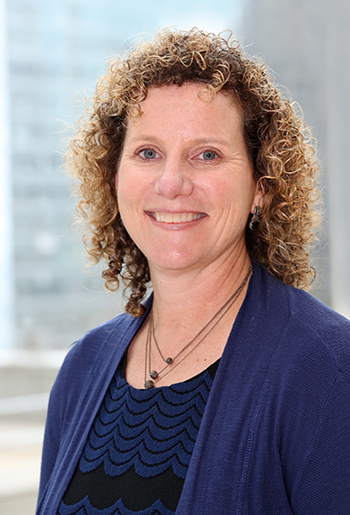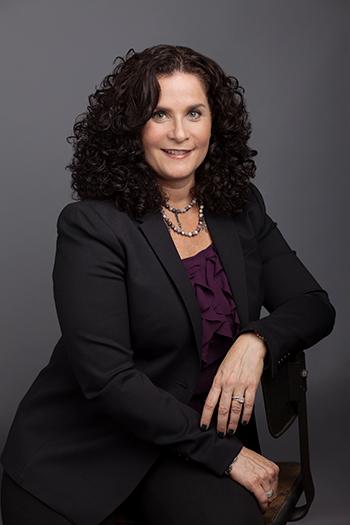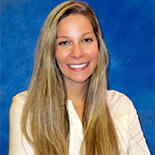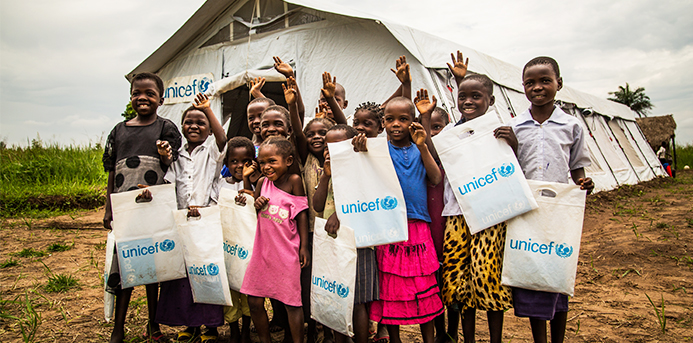For the past seven years, UNICEF USA has been holding its annual UNICEF Chicago Humanitarian Awards Luncheon, paying homage to those leading the charge locally and internationally to improve the lives of children. For its eighth year, the Midwest Regional Office of UNICEF USA will host the 2018 luncheon honoring two exceptional Chicagoans: Dr. Colleen Cicchetti, executive director of the Center for Childhood Resilience at Ann & Robert H. Lurie Children’s Hospital of Chicago, and Phyllis Glink, executive director of the Irving Harris Foundation.
Themed #EatPlayLove, the Oct. 4 luncheon will be held at the Ritz-Carlton Chicago and revolve around conversations about early childhood development, a subject near and dear to both UNICEF and the honorees.
Sherrie Westin will be this year’s keynote speaker. Westin is President of Global Impact and Philanthropy for Sesame Workshop, the nonprofit educational organization behind “Sesame Street,” and a UNICEF USA board member.
Event proceeds directly support UNICEF’s lifesaving work, including emergency relief, lifesaving nutritional and medial aid, educational programming, and so much more. Purchase your tickets today.
Make It Better is proud to be the media sponsor of the UNICEF Chicago Humanitarian Awards Luncheon. We are delighted to share an exclusive Q&A with the luncheon honorees, Cicchetti and Glink.
Dr. Colleen Cicchetti

Make It Better: Tell us about your background and how you got to where you are today.
Colleen Cicchetti: I grew up in a family in which a key belief was that education is one thing that you can give your children that they will always have. Both of my grandmothers were single mothers who worked multiple jobs to support their families and encourage success in school. I was lucky enough to spend most of my school years in Madison, Wisconsin, where education and public service were highly valued and I had many role models for combining those two pursuits. Throughout my studies and professional career, I have also been lucky to have many mentors and leaders who encouraged me to follow my passion and seek creative solutions to meet the needs of kids and families experiencing distress.
When and how did you know that this was the field you wanted to dedicate your career to?
I always liked working with children and thought that I wanted to be a pediatrician. I started down that path in college, but in my freshmen year, I volunteered as a Play Therapy Volunteer at Duke Hospital. I learned that I loved to help kids be kids, even when confronted with sometimes life-threatening situations. I switched my major to psychology and began pursuing this profession through volunteer opportunities, coursework, and eventually jobs and graduate work. The critical role of creating physically and emotionally safe settings for children, with caring adults who encourage them to play and find their inner strength and passion, has been a longstanding priority that has guided my work.
For nearly three decades, you have worked as a clinical psychologist at Lurie Children’s Hospital of Chicago. Later, you went on to teach at Northwestern University’s Feinberg School of Medicine. Currently, you serve as Executive Director of the Center for Childhood Resilience, while also having a strong advocacy footprint. Wearing many hats, how have these roles helped shape you?
I have actually been lucky enough to grow in all of these roles while at Northwestern and Lurie Children’s Hospital (formerly Children’s Memorial). I came to Feinberg School of Medicine to pursue my Ph.D. in clinical psychology. My first research position started that same year working with Dr. John Lavigne, chief psychologist at Lurie Children’s, addressing preschool behavior problems. I have been part of both institutions ever since (except for one year predoctoral internship). Most people are familiar with the roles and reputation at Lurie Children’s for the excellent clinical care and research. Some also know that we are the pediatric teaching facility for Northwestern. What the majority of people do not know is that our fourth pillar is Advocacy. I got involved in the Advocacy Committee when I received a pilot project grant to start a Therapeutic Summer Camp in the Department of Psychiatry. That committee introduced me to the work of advocacy as well as key mentors that have shaped my career at Children’s. I have also been lucky to be invited into several different stakeholder collaborative efforts that have expanded my interest in policy, workforce development, and promoting awareness of issues related to children’s mental health, including the Illinois Children’s Mental Health Partnership and the Illinois Childhood Trauma Coalition. The mentorship and opportunities to collaborate with people who are system-thinkers has been critical for my learning.
Tell us about your mayoral initiatives in combating childhood trauma and how it grew to impact cities nationwide.
I have been lucky enough to be invited to participate in a number of mayoral initiatives that have worked in tandem with key child-serving city departments, including both Chicago Public Schools (CPS) and Chicago Department of Public Health (CDPH). Through the Safer Chicago Initiative, I co-chaired the Health Committee with my colleague Marlita White from CDPH. For the One Chicago Campaign, I co-chair the Mental Health Committee with my colleague Rebecca Ford-Paz. In both cases, Chicago has taken a lead in integrating mental health issues and addressing the impact of trauma in models to promote safety for all of our citizens. This public health approach has placed Chicago in the forefront of many national efforts. The city was recently awarded competitive grants that address the impact of violence through both the schools (Promoting Student Resilience) and the community (ReCAST). In addition, the state agency Illinois Criminal Justice Information Authority (ICJIA) was awarded a SAMHSA grant to build innovative solutions to addressing victimization statewide. Finally, the leadership of Senator Durbin to address the impact of violence and trauma in our communities and to engage the leaders of different collaborative efforts has resulted in a strong footprint of Chicago and Illinois endeavors on national policies.
Why is the work you are doing here in Chicago for children and the work that UNICEF is doing on behalf of the world’s children so important?
UNICEF for me and for many represents the idea that if we all chip in, even our small change, and our talents and resources, we can solve complex problems. In addition, UNICEF is also the group that underscores and highlights that we are all part of a global community. From my perspective, it is only by combining those two key tenants, that we will be able to address these complex issues in our city. We need for all of our citizens to recognize that we must ALL succeed for the city to succeed. We need to “step up and step in” to share our resources, talents, and passion, and to build pathways to opportunity and engagement for kids and families across the city. We cannot allow our citizens to sit back and watch the levels of distress and violence that others are experiencing and not feel compelled to be part of the solution. UNICEF represents that promise and I am excited to be able to underscore the global and local efforts.
What are you most looking forward to at the UNICEF Chicago Humanitarian Awards Luncheon?
Having an opportunity to raise awareness of the importance of addressing children’s mental health as a public health issue and to celebrate the amazing teammates and collaborators that have helped us to build the reach and impact of the Center for Childhood Resilience.
Phyllis Glink

Make It Better: Tell us about your background and how you got to where you are today.
Phyllis Glink: I was born and raised in the Lakeview neighborhood in Chicago. Growing up, I loved walking along the lake and exploring different neighborhoods with my sisters, parents, and friends. My parents instilled in me the importance of kindness, treating everyone as equals, social justice and advocating for myself and for others. My father died when I was 15 and my mother was determined to keep our lives as stable as possible. She learned the art of real estate and became a successful broker all while holding our family together. She has been a remarkable role model for me and my sisters, teaching us the importance of staying strong and fighting for what you care about and believe in.
When I was at the University of Michigan, I ended up co-chairing Student Struggle for Soviet Jewry. We fought for and helped secure the freedom of Soviet Jews who at the time were not able to leave the country. When I moved back to Chicago, I stayed active but shifted to volunteering for the Jewish Children’s Bureau, which was more closely aligned with my passion for ensuring all children and families have the same opportunities for success that I was afforded growing up.
I discovered foundations when I was 22 and newly out of college. Through networking, I met a lot of wonderful leaders who ended up serving as my mentors over the years. At the time, they shared that I needed more experience in the nonprofit sector and that jobs in philanthropy were few and far between. I ended up working for seven years in the development office at the University of Chicago, which reinforced the importance of building trusting relationships and helping people use their resources to support something they care about. As a graduate student at large, I took Susan Mayer’s course on poverty at the Irving B. Harris School of Public Policy Studies and I was hooked. I pursued my MPP from the Harris School because I realized that I could have a much bigger impact on outcomes for children and families if I worked to change the public policies, systems and resources that support and affect them. Right before I finished my degree in child and family policy, the Dean at the Harris School introduced me to Irving Harris. Irving was looking for someone to help him with some projects related to early childhood development and policy. He hired me in 1996 and I have been with the foundation ever since. When I got the job, it felt like I had won the lottery and that holds true today.
When and how did you know that this was the field you wanted to dedicate your career to?
When I was 13, I wanted to be a pediatrician because I loved children and I wanted to help people. As I got older, I realized that medicine was not my path — but I have managed to find a career in philanthropy that allows me realize my childhood goals — giving back and working on behalf of young children. When I discovered the field of philanthropy, I was immediately intrigued by the opportunity to use flexible resources to affect change. It took nine years of working in a related field before I was given this amazing opportunity to learn from and work with Irving Harris and the Irving Harris Foundation’s many public and philanthropic partners. It has been a privilege to collaborate with incredible individuals and organizations to address the complex needs of our most vulnerable young children and families to ensure everyone has the opportunity to succeed.
With over two decades spearheading the Irving Harris Foundation’s grantmaking, what key piece of advice can you give other philanthropic leaders in growing and maximizing grant impact?
I learned from Irving, and later Joan Harris, that trusting relationships matter and that staying true to your core values are essential to moving the needle over time. I was fortunate that my core values are consistent with those of the foundation — justice, persistence, risk-taking, collaboration, and partnership. Irving taught me that in order to maximize our impact, we needed to combine strategic grantmaking with foundation-led initiatives and field leadership, recognizing that our human capital is equally important to maximizing our impact as are grant dollars. This is why members of the team and I serve on and participate in a variety of advisory boards, councils and funder networks to build relationships, identify needs and leverage our expertise.
Primarily, you serve as Executive Director of the Irving Harris Foundation, yet also hold many leadership roles in public and philanthropic sectors. Can you tell us about these roles and what inspires your work?
As part of our work at the foundation, I have the opportunity to work very closely with our grantees and partners in the early childhood field to address the complex needs of pregnant women and very young children and families. There are not enough philanthropic dollars available to address the complex challenges vulnerable children face. That is why we have always partnered with the public and nonprofit sectors to foster change.
The foundation staff and I work shoulder-to-shoulder with grantees, colleagues, and public sector stakeholders. We strive to move critical issues and fill gaps as they arise. Over the years, we have convened conversations and developed relationships that help inform state and federal policy. That work has led to public and private sector collaborations that leverage greater financial investments, strengthen systems infrastructure and raise the profile of the issues we care most about.
I am honored to serve on many government, nonprofit, and funder councils, committees, and advisory boards, which afford me the opportunity to have a much clearer and nuanced understanding of the challenges facing young children and families, and the systems that serve them. Additionally, to be able to participate in helping advance solutions. A few examples of my current leadership roles in the public and philanthropic sectors include:
- I currently serve as co-chair of the Illinois Early Learning Council, a public-private partnership created by Public Act 93-380, which strengthens, coordinates, and expands programs and services for children from birth to age 5 throughout Illinois. With a membership, including senior state officials and non-government stakeholders appointed by the governor, the Early Learning Council builds on current programs to ensure a comprehensive, statewide early learning system (preschool, child care, Head Start, health care, and support programs for parents) to improve the lives of Illinois children and families.
- I have also served on the Illinois Child Care Advisory Council for over 22 years and helped guide the state’s implementation.
- I am an active member of the Early Childhood Funders Collaborative and serve on various committees working to develop strategies to advance policies, best practices, and high quality child and family systems nationally.
- I serve on the advisory board of the federally funded National Center of Excellence in Infant and Early Childhood Mental Health to inform national policies and practices.
- I helped conceptualize the BUILD Initiative, an organization dedicated to helping states provide comprehensive, high-quality services to young children and their families, and now serve as its co-chair.
Why is the work you are doing here in Chicago for children and the work that UNICEF is doing on behalf of the world’s children so important?
On the front page of UNICEF’s website is the phrase, “For every child: a fair chance, health, education, safety.” That is really at the heart of what I and the Irving Harris Foundation team works toward every day. We promote equity of outcomes for all children by enabling access to comprehensive, high-quality care in nurturing environments for pregnant women, very young children, and families, to promote success in school and in life. Too many children in Illinois and nationally are not reaching their potential. A newly released statewide assessment of Kindergarten Readiness found that only 24 percent of Illinois children were ready for kindergarten, with 13 percent of Hispanic or Latino students and 19 percent of black students demonstrating readiness. In addition, too many children are exposed to high levels of toxic stress and trauma that can lead to significant issues over their lifetime if not addressed by well-trained mental health experts and trauma-informed teachers.
The foundation works closely with our public and nonprofit partners to develop a high-quality early childhood system that will support access to the comprehensive services that all young children and families need to succeed. We invest in diverse leadership development and training for the early childhood workforce, create and disseminate innovative model programs, and advocate for policies designed to lead to equitable outcomes for all children of Illinois and nationally. In particular, we focus on infant and early childhood mental health while addressing childhood trauma. Healthy social emotional development and wellbeing is essential for children to thrive in school and beyond. UNICEF works internationally to save children’s lives, to defend their rights, and to help them fulfill their potential — from early childhood through adolescence. We share a common set of values and goals.
What are you most looking forward to at the UNICEF Chicago Humanitarian Awards Luncheon?
I am looking forward to sharing the day with my husband and two daughters who inspire me and bring meaning to my life every day. I have been honored to work for the Irving Harris Foundation and to work with Joan, the board, and our amazing team to advance Irving’s incredible legacy in the fields of early childhood, mental health, and child trauma. It will be wonderful to share this award with them. I am also excited to share this honor with Colleen Cicchetti who is a valued colleague and partner in our work to bring trauma-informed services to children across the age spectrum.
 Emily Stone is Associate Editor at Make It Better. She earned a degree in journalism from Elon University in North Carolina. Along with writing, Stone has a passion for digital storytelling and photography. Her work is published in Chicago Athlete Magazine. Stone is a supporter of St. Jude Children’s Research Hospital and the National Multiple Sclerosis Society. Stone is a fluent Spanish speaker who in her free time loves a good dance class.
Emily Stone is Associate Editor at Make It Better. She earned a degree in journalism from Elon University in North Carolina. Along with writing, Stone has a passion for digital storytelling and photography. Her work is published in Chicago Athlete Magazine. Stone is a supporter of St. Jude Children’s Research Hospital and the National Multiple Sclerosis Society. Stone is a fluent Spanish speaker who in her free time loves a good dance class.

